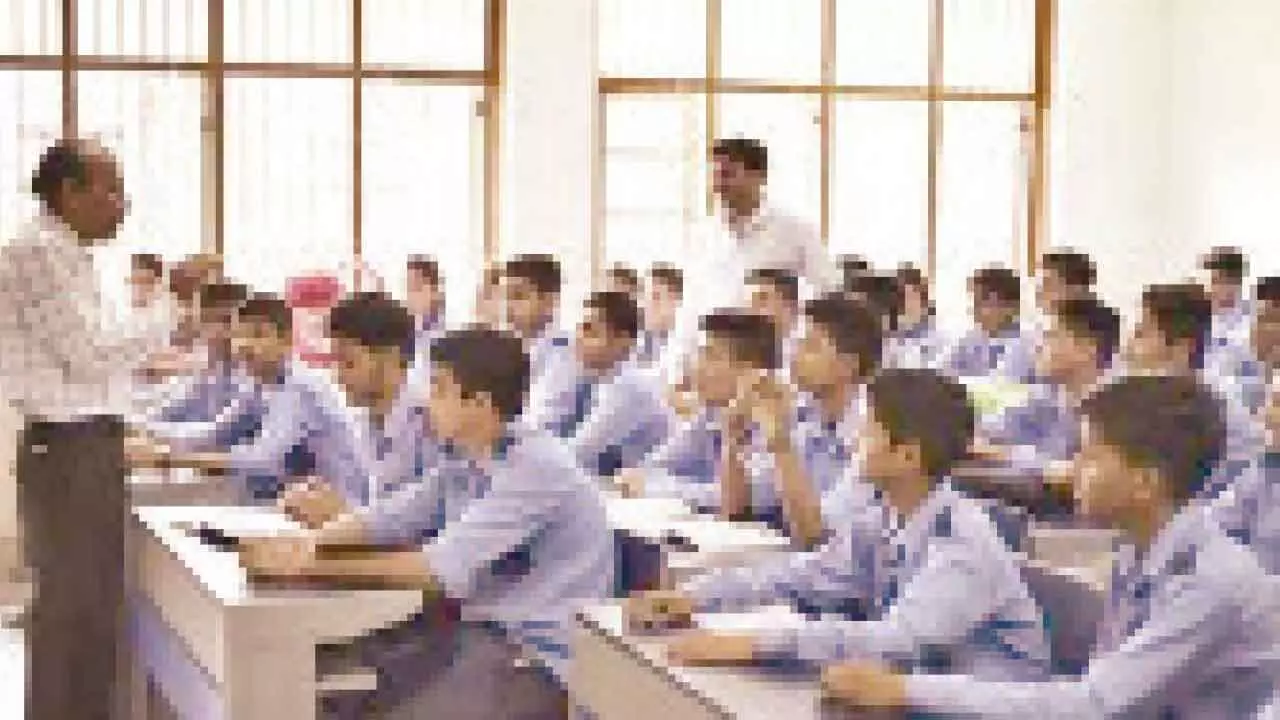Education policy: The Amma Medium vs. Mummy Medium

The colonial pursuit of double standards of making Ganga into the Ganges
Hyderabad: What are the impacts of an en masse conversion of Telugu medium schools into English medium ones? Both the political bosses and the bureaucrats heading the education departments rubbish neglecting Telugu language studies, claiming that Telugu remains the official language of Andhra Pradesh and Telangana. As a policy, learning Telugu as one of the subjects is mandatory till Class X.
However, the Annual Status of Education Report (ASER) for the past couple of years have exposed the hollow claims of these officials.
For example, the ASERs for the past couple of years say that boys and girls in the age groups of 14 to 18 years could not read even the Class II Telugu textbooks in parts of Andhra Pradesh.
Recently, the District Collector of Khammam shared on the social media handle X about a new initiative called ‘We Can Learn’. The official claimed that it is an initiative to promote English language immersion and learning in upper primary schools. However, the ASER says that only 42.2 per cent of students in Khammam in the same age groups as Andhra Pradesh could read the Class II Telugu textbook. And how to improve speaking and writing in Telugu is generally given a raw deal when compared to English.
Speaking to The Hans India, a faculty member from the Department of Telugu, Andhra University, Visakhapatnam said, “We need to look into several aspects of language and linguistics to get to the bottom of these issues and understand how en masse shifting of children from a natural language family (Telugu) to the acquired language (English) and how it affects in the long term over the entire population for centuries.” These include vernacularisation, linguistic hierarchies, creative and generative dimensions, metaphysics of language, metalinguistics, etc.
The metaphysics of language studies ideas and assumptions of non-physical in nature underlying and embedded in the linguistic entities. This includes words, sentences, phonemes, linguistic properties etc. It is an interdisciplinary study of intersectional research involving sociology, linguistics, psychology, cognitive sciences and the like. For people, living in a natural language family like Telugu or any other Indian language pick up the metalinguistic awareness while growing up in that language continuum. It is a critical skill for reading proficiency and learning independence and continues an important element in bridging one language to another.
The importance of ‘context’ and ‘pre-text’ explained by Ludwig Wittgenstiein’s theory of language game theory explains the deeper aspects of language as a system of social activities depending on certain rules and how its usage in various contexts of human life makes sense.
For example, under colonial English influence, students in the classrooms for generations insisted upon writing and using the exonym word ‘Ganges’ for the endonym word for the river ‘Ganga’. Not using the word Ganges was found fault and considered a poor state of English learning.
However, in the case of the River Thames, both in English and Telugu and other Indian languages, the students have insisted that it should be written and spoken in the same endonym manner as it has been written and understood by the native English people. Though the situation has improved a lot, the adoption of English media at the cost of the native language mediums and how English is being promoted and practices imposed on people exposes the double standards of the education policies pursued, even after the colonial regimes have long gone. And the gross negligence and irresponsibility with which such policies are pursued, being detrimental to native languages like Telugu.
A lot of homework needed to be done to deal with language learning. However, the State Government of Andhra Pradesh had never consulted either the Telugu language or Linguistic departments or experts, before making its policy decision to bring such a major shift in its language teaching and learning policy.










